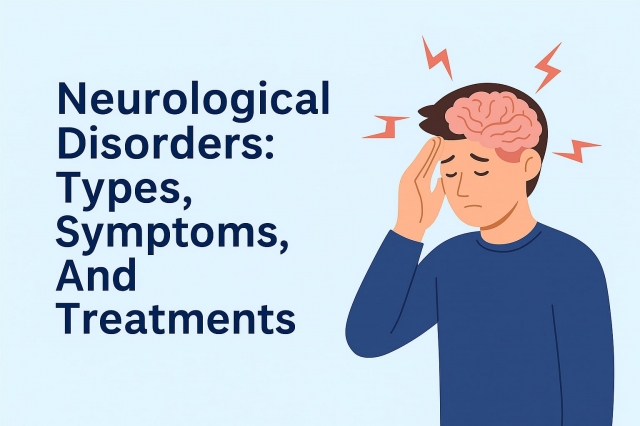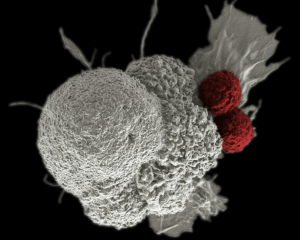Neurological disorders encompass a diverse array of conditions affecting the nervous system, ranging from common ailments to rare and complex diseases. This comprehensive guide explores the various types of neurological disorders, their distinct symptoms, underlying causes, diagnostic approaches, and current treatment strategies.
Types of Neurological Disorders
Neurological disorders can be categorized based on the part of the nervous system they affect and their primary symptoms:
- Degenerative Disorders: These disorders involve progressive damage or deterioration of nerve cells and tissues. Examples include Alzheimer's disease, Parkinson's disease, Huntington's disease, and amyotrophic lateral sclerosis (ALS).
- Stroke and Vascular Disorders: Conditions caused by disruptions in blood flow to the brain, such as ischemic stroke, hemorrhagic stroke, transient ischemic attack (TIA), and cerebral aneurysms.
- Epilepsy and Seizure Disorders: Characterized by recurrent seizures, which vary in type and severity. Epilepsy can develop due to genetic factors, brain injuries, tumors, infections, or developmental disorders.
- Neuromuscular Disorders: Conditions affecting the nerves that control voluntary muscles, leading to weakness, paralysis, or impaired movement. Examples include multiple sclerosis (MS), muscular dystrophy, and myasthenia gravis.
- Headaches and Migraines: Chronic headaches and migraines are common neurological conditions characterized by recurrent pain, often accompanied by sensory disturbances and other symptoms.
- Neurodevelopmental Disorders: These disorders typically manifest early in life and affect brain function, development, and behavior. Examples include autism spectrum disorder (ASD), attention-deficit/hyperactivity disorder (ADHD), and intellectual disabilities.
- Infectious Diseases: Certain infections can affect the nervous system, causing inflammation of the brain (encephalitis) or its protective membranes (meningitis). Examples include viral infections (e.g., Zika virus, herpes simplex virus) and bacterial infections (e.g., bacterial meningitis).
Symptoms and Presentation
Symptoms of neurological disorders vary widely depending on the specific condition and the area of the nervous system affected:
- Cognitive Symptoms: Memory loss, confusion, difficulty concentrating, and changes in reasoning abilities.
- Motor Symptoms: Weakness, tremors, impaired coordination, difficulty walking or maintaining balance.
- Sensory Symptoms: Numbness, tingling, hypersensitivity to touch or pain, changes in vision or hearing.
- Seizures: Sudden, uncontrolled electrical disturbances in the brain, leading to convulsions, loss of consciousness, or altered behavior.
- Headaches: Persistent or severe headaches, often accompanied by sensitivity to light or sound, nausea, and visual disturbances.
- Speech and Language Difficulties: Impairments in speech production, understanding language, or communication.
Check Out: Functional Neurosurgery
Causes and Risk Factors
The causes of neurological disorders can be complex and multifactorial:
- Genetic Factors: Inherited genetic mutations or predispositions that increase susceptibility to certain disorders.
- Environmental Exposures: Exposure to toxins, chemicals, or pollutants that can damage the nervous system.
- Infections: Viral, bacterial, fungal, or parasitic infections that affect the brain, spinal cord, or nerves.
- Autoimmune Disorders: Conditions where the immune system mistakenly attacks the body's own tissues, including the nervous system.
- Traumatic Injuries: Head injuries, spinal cord injuries, or trauma that disrupts normal nervous system function.
- Vascular Conditions: Conditions affecting blood flow to the brain, such as hypertension, diabetes, or cardiovascular disease.
Diagnosis and Evaluation
Diagnosing neurological disorders often requires a comprehensive evaluation, which may include:
- Medical History: Reviewing symptoms, previous illnesses, family history of neurological disorders.
- Neurological Examination: Assessing reflexes, muscle strength, coordination, sensory perception, and cognitive function.
- Imaging Tests: MRI (Magnetic Resonance Imaging) and CT (Computed Tomography) scans provide detailed images of the brain and spinal cord to detect structural abnormalities, tumors, or injuries.
- Electrophysiological Tests: EEG (Electroencephalogram), EMG (Electromyography), and nerve conduction studies measure electrical activity in the brain, nerves, and muscles to diagnose conditions like epilepsy, neuropathy, or myopathy.
- Laboratory Tests: Blood tests, cerebrospinal fluid analysis, and genetic testing may be performed to detect infections, autoimmune disorders, metabolic conditions, or genetic mutations associated with neurological disorders.
Treatment Approaches
Treatment for neurological disorders aims to manage symptoms, slow disease progression, and improve quality of life:
- Medications: Prescription drugs to control seizures (antiepileptic medications), alleviate pain (analgesics), manage symptoms of Parkinson's disease (dopaminergic agents), or modify disease activity in multiple sclerosis (immunomodulators).
- Surgery: Surgical interventions may be necessary to remove brain tumors, relieve pressure on the brain or spinal cord (decompression surgery), or implant devices for deep brain stimulation (DBS) in movement disorders.
- Physical Therapy: Rehabilitation programs to improve strength, mobility, balance, and coordination, particularly in patients recovering from strokes or managing neuromuscular disorders.
- Speech and Occupational Therapy: Therapies to enhance communication skills, cognitive function, and daily living activities for individuals with speech or motor impairments.
- Lifestyle Modifications: Adopting healthy habits such as regular exercise, balanced nutrition, stress management techniques, and adequate sleep to support overall brain health and well-being.
- Supportive Care: Palliative care, hospice services, and multidisciplinary care teams provide emotional support, symptom management, and end-of-life care for patients with advanced or terminal neurological conditions.
Advances in Neurological Research
Recent advancements in neurology research have led to innovative approaches and therapies:
- Precision Medicine: Tailoring treatment based on individual genetic profiles, disease characteristics, and response to medications.
- Neuroimaging Technologies: Advancements in MRI, CT, PET (Positron Emission Tomography), and fMRI (Functional MRI) enhance diagnostic accuracy and monitoring of disease progression.
- Stem Cell Therapy: Investigating the potential of stem cells to repair damaged neurons, regenerate nerve tissues, and restore neurological function in conditions like spinal cord injuries or neurodegenerative diseases.
- Genetic and Molecular Research: Identifying genetic markers, biomarkers, and molecular pathways associated with neurological disorders to develop targeted therapies and interventions.
- Neuromodulation Techniques: Utilizing DBS, TMS (Transcranial Magnetic Stimulation), and VNS (Vagus Nerve Stimulation) for treating movement disorders, epilepsy, depression, and chronic pain management.
Living with Neurological Disorders
Managing a neurological disorder often requires ongoing medical care, lifestyle adjustments, and emotional support:
- Patient Education: Understanding the nature of the condition, treatment options, and potential complications empowers patients to actively participate in their care.
- Family and Caregiver Support: Providing emotional support, practical assistance, and respite care for caregivers and loved ones.
- Community Resources: Accessing support groups, educational programs, and advocacy organizations to connect with others facing similar challenges and share experiences.
- Advocacy and Awareness: Raising awareness about neurological disorders, reducing stigma, and advocating for research funding, improved access to healthcare, and supportive services.
Conclusion
Neurological disorders present complex challenges that require a multidisciplinary approach to diagnosis, treatment, and ongoing management. Advances in medical research, technology, and personalized care offer hope for improved outcomes and quality of life for patients affected by these conditions. By understanding the types, symptoms, causes, and treatment options for neurological disorders, individuals can make informed decisions, seek timely medical intervention, and access supportive resources to navigate their journey with resilience and support.
Navigating neurological disorders requires a multifaceted approach that combines medical expertise, personalized care, and ongoing support. Under the guidance of Dr. Chirag Solanki - the best neurosurgeon in Ahmedabad, CNS Neurosurgery stands as a beacon of hope for patients, offering advanced treatments, innovative solutions, and compassionate care. By understanding the complexities of neurological conditions and embracing a proactive mindset, patients can embark on a journey towards better health and improved quality of life.
For those seeking expert help and guidance in managing neurological disorders, CNS Neurosurgery and Dr. Chirag Solanki provide a steadfast commitment to excellence and innovation in neurosurgical care.






